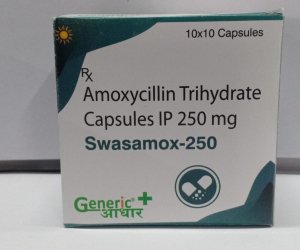Description
Ciprofloxacin 500 Mg + Tinidazole 600 Mg Tablet is a combination medicine that is used to treat gynecological infections, teeth and urine infections, lung infections, and abdominal infections such as acute diarrhea or dysentery. It acts against the infection-causing microorganisms to manage the infections. is a combination of two antibiotics: Ciprofloxacin and Tinidazole. Ciprofloxacin works by preventing the bacterial cells from dividing and repairing, thereby killing the bacteria. Tinidazole kills parasites and anaerobic bacteria that cause infections by damaging their DNA. Together, they treat your infection effectively.used to treat infections caused by bacteria and parasites. These include gynecological infections, teeth and urine infections, lung infections, and abdominal infections such as acute diarrhea or dysentery.This medicine usually makes you feel better quite quickly. However, you should continue taking it as long as it is prescribed even if you feel better, to make sure that all bacteria and parasites are killed and do not become resistant. This Tablet is a prescription medicine that is advised to be taken as suggested by the doctor. It should be taken with food, but it must be taken at a fixed time to ensure better efficacy. Do not consume more than the recommended dose, as an overdose of it may have harmful effects on your body. If you miss a dose, take it as soon as you remember. The treatment must be completed even if you feel better to ensure a complete recovery.
Ciprofloxacin (500mg): A fluoroquinolone antibiotic that works by stopping the growth of bacteria. It’s commonly used to treat a variety of bacterial infections, including:
1.Urinary tract infections
2.Respiratory tract infections (e.g., bronchitis, pneumonia)
3.Skin and soft tissue infections
4.Gastrointestinal infections (e.g., traveler’s diarrhea)
Tinidazole (600mg): An antiprotozoal and antibacterial medication. It works by killing certain parasites and bacteria. It’s commonly used to treat:
1.Bacterial and parasitic infections of the gastrointestinal tract (e.g., giardiasis, amebic dysentery)
2.Vaginal infections (trichomoniasis)






Reviews
There are no reviews yet.